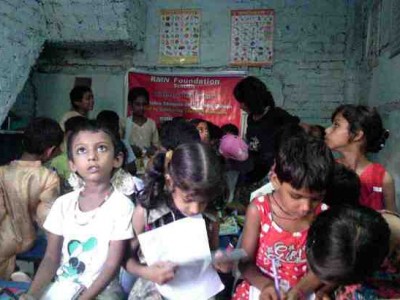
Is Pranab Mukherjee the Education President of India?

Pranab Mukherjee receiving the first copy of the book “The Education President” from the Vice President, M. Hamid Ansari, at the Rashtrapati Bhavan, in New Delhi on June 08, 2016.
As the education quality in India is perhaps the worst in the world, most Indians are not employable in the contemporary job market.
By Rakesh Raman
Pranab Mukherjee, the current President of India, is like all other local politicians who have failed to contribute anything for the development of the country. As a result, India continues to be an underdeveloped country.
There is no visible contribution of Mukherjee in the education sector of India where nearly 9 out of every 10 persons are uneducated. Worse, even the education minister of India is uneducated.
And there are some serious doubts about the academic qualifications of the current Prime Minister Narendra Modi.
[ Read: तो क्या है भारत के प्रधान मंत्री नरेंद्र मोदी की डिग्री का राज़? ]
As the education quality in India is perhaps the worst in the world, most Indians are not employable in the contemporary job market. As a result, the unemployment is spreading like a dreaded disease in India.
Yet, Mukherjee is brazenly relishing the title ‘The Education President’ bestowed upon him. The Vice President of India, M. Hamid Ansari today presented Mukherjee the first copy of a book titled ‘The Education President.’
Ansari said that since independence, India’s higher education sector has witnessed tremendous growth and that a feature of this expansion, especially in the last 25 years, has been the increasing participation of the private sector in higher education.
[ Also Read: स्कूल बेकार, पढ़े–लिखे बेरोजगार, यह है दिल्ली सरकार ]
Referring to various surveys, he however said, that educational scene in our country today – primary, secondary and university or professional – present a dismal picture as it suffers from the tyranny of numbers, the folly of seeking quick fixes, and indifference to quality.
Ansari further said that Mukherjee himself, who has taken great interest in matters relating to higher education, had occasion earlier this year to express concern over this state of affairs. Correctives are piecemeal, inadequately implemented, and insufficiently funded, he added.
[ क्या आप भी अपने बच्चों की पढ़ाई को लेकर परेशान हैं? ]
The Vice President also expressed concern over skewed sectoral and regional growth of private institutions, the lack of research orientation and the growing financial burden in form of educational loans.
He said that keeping in mind the egalitarian objectives of our polity, there is a need for an effective and transparent regulatory mechanism that can encourage private investment in improving the quality of state universities, starting skills development courses and capacity development of faculty.
These regulations need to be strong to ensure that private universities are well governed and provide quality education, he added.
By Rakesh Raman, the managing editor of RMN Company
Photo courtesy: Press Information Bureau












